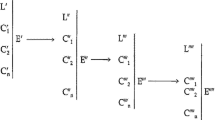Abstract
In Molecular Models: Philosophical Papers on Molecular Biology, Sahotra Sarkar presents a historical and philosophical analysis of four important themes in philosophy of science that have been influenced by discoveries in molecular biology. These are: reduction, function, information and directed mutation. I argue that there is an important difference between the cases of function and information and the more complex case of scientific reduction. In the former cases it makes sense to taxonomise important variations in scientific and philosophical usage of the terms “function” and “information”. However, the variety of usage of “reduction” across scientific disciplines (and across philosophy of science) makes such taxonomy inappropriate. Sarkar presents reduction as a set of facts about the world that science has discovered, but the facts in question are remarkably disparate; variously semantic, epistemic and ontological. I argue that the more natural conclusion of Sarkar’s analysis is eliminativism about reduction as a scientific concept.
Similar content being viewed by others
References
Beckermann A (1992) Supervenience, emergence, and reduction. In: Beckermann A (ed) Emergence or reduction? De Gruyter, Berlin, pp 94–118
Bickle J (1992) Mental anomaly and the new mind–brain reductionism. Philos Sci 59(2):217–230
Bickle J (1996) New wave reductionism and the methodological caveats. Philos Phenomenol Res 56(1):57–78
Brigandt I, Love A (2008) Reductionism in biology. In: Zalta EN (ed) Stanford encyclopedia of philosophy 2009. http://plato.stanford.edu/entries/reduction-biology/. Accessed 10 Jul 2009
Crick FHC (1958) On protein synthesis. Symp Soc Exp Biol 12:138–163
Davidson D (1970) Mental events. In: Foster S et al (eds) Experience and theory. University of Massachusetts Press, Amherst, pp 79–101
Fodor J (1973) Special sciences (or: the disunity of science as a working hypothesis). Synthese 28:97–115
Griffiths P (2002) What is innateness? Monist 85(1):70–85
Griffiths R, Gray R (1994) Developmental systems and evolutionary explanation. J Philos XCI(6):277–304
Hooker CA (1981) Towards a general theory of reduction. Dialogue 20:35–59, 201–236, 496–529
Ladyman J, Ross D (2007) Every thing must go: metaphysics naturalised. Oxford University Press, Oxford (with Spurrett D, Collier J)
Luria SE, Delbrück M (1943) Mutations of bacteria from virus sensitivity to virus resistance. Genetics 28:491–511
Maclaurin J (1998) Reinventing molecular weismannism: information in evolution. Biol Philos 13:37–59
Maclaurin J (2002) The resurrection of innateness. Monist 85(1):105–130
Millikan R (1989) In defense of proper functions. Philos Sci 56(2):288–302
Nagel E (1951) The structure of science. Hartcourt, Brace and World, New York
Neander K (1991) Functions as selected effects: the conceptual analyst’s defence. Philos Sci 58(2):168–184
Nickles T (1973) Two concepts of inter-theoretic reduction. J Philos 70:181–201
Oppenheim P, Putnam H (1958) Unity of science as a working hypothesis. In: Feigl H et al (eds) Minnesota studies in the philosophy of science, vol 2. Minnesota University Press, Minneapolis, pp 3–36
Oyama S (1985) The ontogeny of information. Cambridge University Press, New York
Schaffner KF (1967) Approaches to reduction. Philos Sci 34:137–147
Sklar L (1967) Types of inter-theoretic reduction. Br J Philos Sci 18:109–124
Sterelny K, Smith K, Dickison M (1996) The extended replicator. Biol Philos 11:377–403
Wimsatt WC (1976) Reductive explanation: a functional account. In: Cohen R, Hooker C, Michalos A, van Evra J (eds) PSA 1974. D. Reidel, Dordrecht, pp 671–710
Author information
Authors and Affiliations
Corresponding author
Rights and permissions
About this article
Cite this article
Maclaurin, J. Against reduction. Biol Philos 26, 151–158 (2011). https://doi.org/10.1007/s10539-009-9183-9
Received:
Accepted:
Published:
Issue Date:
DOI: https://doi.org/10.1007/s10539-009-9183-9




